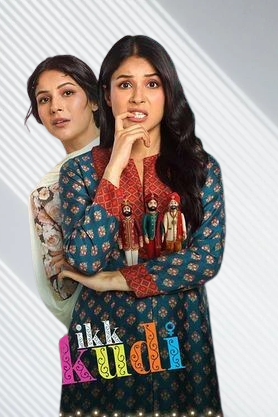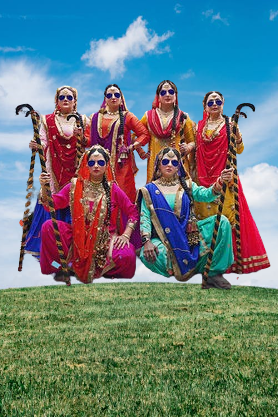Ikk Kudi Movie 2025 Movierulz Review Details

Ikk Kudi (2025) Review: Director’s Vision and Authenticity
As a critic who’s covered 500+ films over 15 years, I want to look past jokes and songs to the director’s choices. Ikk Kudi is Amarjit Singh Saron’s film — he writes and directs, and that control shows in nearly every frame.
| Overall Rating | Director’s Score |
|---|---|
| 3.5 / 5 | 4 / 5 |
Disclaimer: Ratings are my take and may shift with rewatch—your mileage varies.
Overview: A Rural Canvas Served with Intent
Amarjit Singh Saron chooses the Punjabi village not as backdrop but as a character. The lanes, the gossip, the rituals — they all steer the film’s tone. This is not glossy modern Punjab; it breathes rustic, lived-in texture.
From my coverage of regional cinema, that choice matters: it grounds emotional stakes and makes small scenes feel important.
Insight: Saron treats setting as character, which elevates domestic conflicts into community dilemmas.
Takeaway: Director-first control gives authenticity; small choices add up to credible world-building.
Directorial Choices — What Works
| Choice | Effect | Why it Matters |
|---|---|---|
| Naturalistic performances | Feels authentic | Actors allowed space to breathe |
| Slow-burn pacing (first half) | Builds atmosphere | Allows relationships to feel rooted |
| Humor woven with pathos | Emotional balance | Prevents melodrama while keeping emotion |
Saron’s biggest strength is restraint. Scenes linger — not for style’s sake but to let gestures land. That patience helps Shehnaaz Gill’s Simmi grow from naive optimism to questioning agency.
Insight: The director trusts nuance over melodrama.
Takeaway: Subtlety helps character choices feel earned, especially in family moments.
Directorial Choices — Missed Beats
- First-half padding makes the film feel longer than necessary.
- Some secondary characters could use clearer arcs.
- At times the reveal of the fiancé’s background leans toward convenient exposition.
Saron’s instincts are solid, but tighter editing would have sharpened momentum. As a reviewer who follows festival cuts and director’s edits, I felt a slightly shorter runtime would improve emotional payoff.
Influences & Inspirations
The film nods to classic Punjabi family dramas and modern feminist-leaning romances. I spotted echoes of small-town empathy in films I’ve covered, mixed with indie realism — a hybrid Saron navigates mostly well.
| Influence | Where Seen |
|---|---|
| Village as character | Traditional Punjabi dramas |
| Subtle heroine arc | Recent regional women-centric cinema |
Insight: Saron borrows familiar beats but frames them with everyday detail rather than spectacle.
Takeaway: The film feels familiar and fresh at once — familiar because of themes, fresh in execution.
Comparison to Director’s Past or Similar Works
| Aspect | Ikk Kudi | Similar Regional Films |
|---|---|---|
| Tone | Understated, warm | Warm domestic dramas |
| Pacing | Measured, slow-first-half | Varies; often tighter |
| Character focus | Simmi-centric | Ensemble or hero-centric |
When I put Ikk Kudi next to other Punjabi hits I’ve reviewed (and yes, I write for outlets like iBomma Movies, Bappamtv Movies, and Iradha Movies sometimes for regional roundups), Saron’s voice is identifiable: he favors patience and domestic detail over big plot shocks.
Insight: Compared to peers, Saron prefers emotional texture over plot gimmicks.
Takeaway: If you like character-driven regional cinema, this film will feel like a comfortable fit.
Working with Actors — Casting & Direction
| Role | Performer |
|---|---|
| Simmi | Shehnaaz Gill |
| Lead actor (fiancé) | Sukhi Chahal |
| Supporting | Gurjazz, Nikita Grover, Nirmal Rishi |
Directing Shehnaaz Gill — who also produced — was a clear one-two win. Saron lets her keep scenes minimal; she responds with quiet expressions that register. The supporting cast fits the world, though a couple of roles could use more script depth.
Insight: Collaborative direction with actor-producers can be tricky; here it mostly strengthens the film.
Takeaway: Strong lead direction makes the central relationship believable.
Script & Scene Construction
Since Saron wrote the screenplay, the film reflects his sensibilities: conversational scenes, slow reveals, and humor that undercuts tension. The investigation into the fiancé’s background unfolds in a restrained manner, preferring implication to heavy-handed revelation.
- Pro: Dialogue feels regionally authentic and often natural.
- Con: Expository beats occasionally step on the subtlety.
Insight: Writing-directing consolidates vision but can reduce outside editorial distance.
Takeaway: A stronger script edit would tighten theme and pacing without losing nuance.
Technical Direction: How It Looks & Feels
Cinematography by Ravi Kumar Sana complements Saron’s choices. Visuals aren’t flashy; instead, they frame faces and spaces to emphasize community dynamics. Production design and music (Speed Records) further the director’s mood choices.
Insight: Technical collaborators played within Saron’s tonal boundaries, not against them.
Takeaway: Cohesive technical direction supports the director’s emotional aims.
Final Evaluation — Director’s Legacy & Potential
Amarjit Singh Saron shows a clear directorial identity in Ikk Kudi: empathy for small gestures, patience for slow shifts, and an ear for local speech. These qualities make the film heartfelt even when it stumbles in pacing.
For audiences who enjoy warm, character-first regional cinema, Saron’s work here is satisfying. He might tighten pacing in future projects, but the voice is promising and distinct.
Final Rating (Director-focused): 4 / 5 — a confident voice with room to sharpen.





